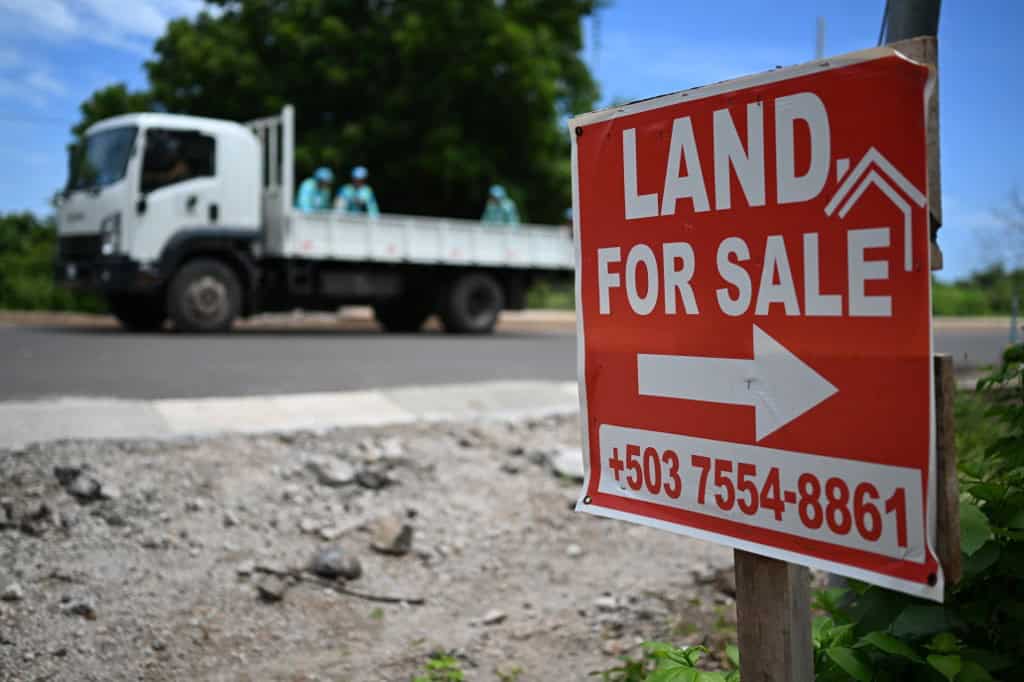Rosa Romero never imagined that she could be evicted from her humble home on a beach in El Salvador. However, real estate and tourism investments, driven by President Nayib Bukele’s anti-gang crusade, have left her cornered. Like her in El Higuerón, 175 km southeast of the capital San Salvador, hundreds of poor Salvadorans are at risk of losing the homes they built decades ago on public lands.
“My [four] children, me, and them, we’re worried because a woman who claims to be the owner of the land has come […], she has sued me to have me evicted,” says this 41-year-old single mother. Romero’s house has walls and a roof made of zinc sheets, the floor is dirt, there are no interior divisions, and the windows are glassless holes. Her older children, Joaquín (22 years old) and Ulises (16), work in fishing to support the family.
“We live off the sea, and if we have to leave here, how will we survive?” says Romero as she shows two court summonses for an “eviction conciliation proceeding.”
Land for Sale
Romero was 11 years old when she and an older sister settled to live on this beach in the Jucuarán district, along with other poor families. The brutal Salvadoran civil war (1980-1992) had just ended. These lands were state-owned, and the authorities at the time promised to give these families property titles, but they never did.
The El Higuerón beach was nearly untouched until recently, but now it attracts tourists and surfers. This has spurred real estate development as security conditions in the country have improved with Bukele’s “war” against gangs.
In August 2022, the president visited the nearby town of Punta Mango to announce the construction of a road to Surf City 2, an area destined for hotels and restaurants, which includes El Higuerón beach.
“Land for sale,” “rooms for rent,” say signs in English installed along the route, where under a scorching sun, dozens of workers are building three bridges.
Uncertainty
Around 625 poor families in the area are at risk of eviction, according to the NGO Cristosal and the Indigenous Movement for the Integration of the Struggles of the Ancestral Peoples of El Salvador (Milpa), which are supporting those affected. Lands “with access to the sea are increasingly being taken over by business groups” targeting foreign tourists, said Ángel Flores from Milpa. The government declined to comment on this issue.
Flores says that the Surf City 2 mega-projects and the Pacific airport have “skyrocketed” the price of land from $3,000 to $28,000 per hectare. Those who will be evicted for the airport had their lands purchased by the government since they had property titles, but those without titles are living in anguish. For Surf City 1, in the central department of La Libertad, about 125 families will be evicted from El Zonte beach.
They were promised relocation to a nearby hill, but the construction of the houses has been delayed. A woman who runs a food stand in front of El Zonte beach, who prefers not to be identified, laments that she will lose her home and her place of work. Additionally, the 55-year-old humble vendor is worried because she was recently informed that the “new little house will not be given away” but must be “purchased.”
In El Zonte, the occupied lands were also state-owned, and few families received property titles, even though they have lived there for decades.
Radical Process
Thirteen out of every 100 Salvadoran families face “insecurity in the tenure of the land where they reside,” according to the Public Opinion Institute of the Central American University (IUDOP). Housing prices in the country have risen due to the arrival of foreigners. Cristosal and IUDOP claim that a rapid “gentrification” process is underway, an urban densification process in which poor families are displaced by higher-income individuals.
“We have observed a significant but also radical process of gentrification that is limiting access to housing for Salvadorans,” says IUDOP director Laura Andrade. Rina Montti from Cristosal states that there is “a surge in gentrification cases” and that authorities “are not providing alternatives to people from these communities.”






